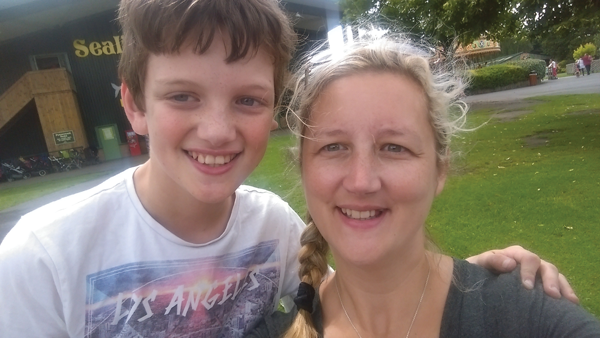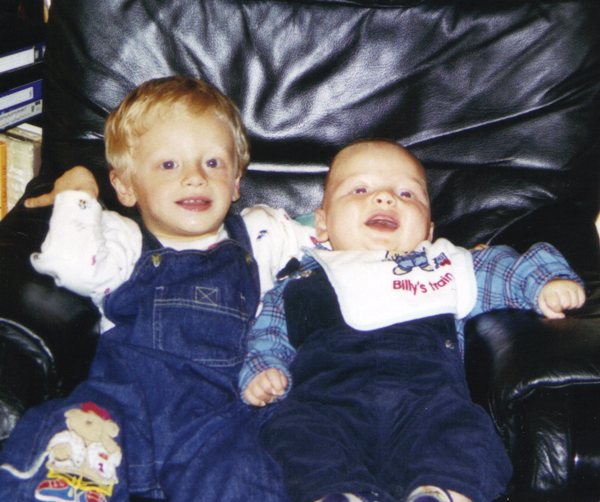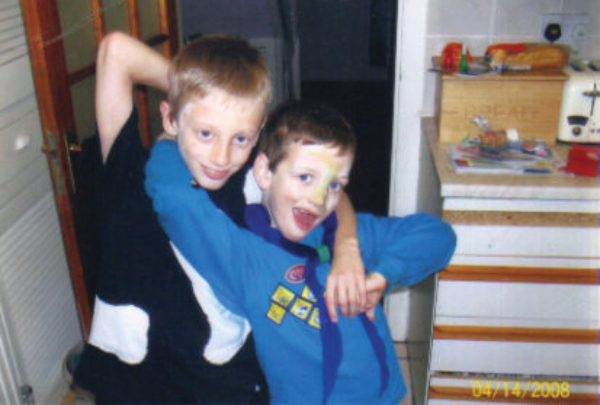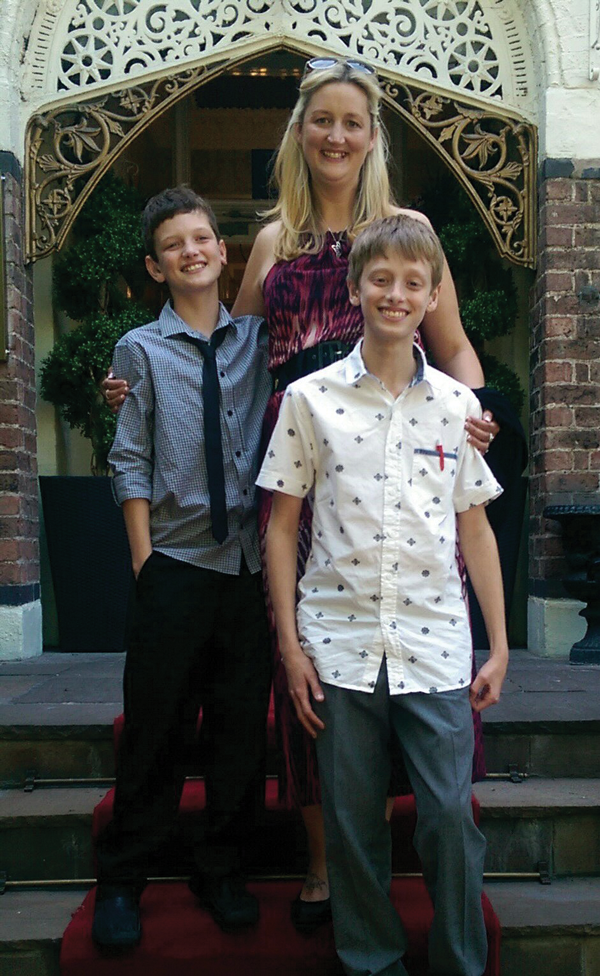
Tamsin Coates lives in Wallesey, UK and talks about coming to terms with the difficulties and joys of having two deaf children. Here she explains about the early days and the impact of their diagnosis upon the family.
Thinking back to the early days when my sons were first diagnosed as having a hearing loss, one vivid memory is of an early conversation with their teacher of the deaf. She called to deliver our ‘Phonak’ accessory bags and made the observation that coming to terms with having a child who is deaf may be a harder task than it might be for other disabilities because of the joint aspects of your child’s difficulties/needs and the equipment you have to master. Many years on I can re-tube a hearing aid in record time, change batteries in the dark with my eyes shut and troubleshoot part failure on a cochlear implant down a phone line and hundreds of miles away – but it hasn’t always been that way.
In some ways I was very lucky that my boys were diagnosed together – they were diagnosed on the same day at age three months and eighteen months old respectively. Whilst it was devastating to hear such big news about my tiny baby, for my eighteen month old, it was confirmation that my instincts had been right and most important of all it gave us a direction. Two such different emotional reactions but reflective of the age difference between them and the evident difficulties my older son was facing.
As soon as we had the diagnosis we started using sign language with my sons and within a week we were a family of two under two year olds with four hearing aids between them. The audiologist called to our house for the fitting and I remember his look of horror as he handed over the four hearing aids with repeated instructions around care and spied our large fish tank! I do have to own up to one set of flushed hearing aids during the potty training phase, but we really did try our best and they never went for a swim in the fish tank!
“As a parent you can feel inhibited by a professional’s status and a disparity between the reality you face and feel at home and the ideal responses and outcomes you sense are expected of you when asked questions in an appointment.”
We immediately set about getting the boys to wear their hearing aids for long spells in the day. We soon built up how long my eldest could wear them for to the majority of his waking hours and whilst doing it with him we pushed on with my younger son too. It took vigilance, patience, persistence and would have been a losing battle without the bungee clips which came in the accessory pack. They have saved the day in ball ponds and on long walks in the buggy alike.

Cameron and Campbell just after diagnosis.
Meeting other parents since then I realise just how lucky we were with how our boys took to wearing their equipment and, for me the need for them both to wear them at the same time galvanised me in a strange sense to make it happen. For other parents, I know it has not been so easy, either practically or emotionally.
It is a hard process as a parent to make your child wear something which is uncomfortable and irritating. Parental emotion can bring in feelings of guilt that your baby or child is having to wear something which could be too noisy, uncomfortable or sore. Hearing aids are a physical marker which bring out interested glances around the supermarket and sympathetic or ignorant comments which can be fine one day or a step too far the next. They are also a sign of acceptance that your child has a difficulty – they need equipment to aid their access to sounds around them. For some parents acceptance can come shortly after diagnosis. For other parents it may take a period of weeks, months or much longer – this time taken to accept the needs of your child can blinker you to the essential nature of the equipment. Well-meaning, but uninformed relatives who are able to cite numerous instances where your baby or child has responded to noise question if the equipment is necessary. Assertions forming worms of doubt which can make you second guess and drag your heels as a parent who just wants their baby to have an easy perfect life.

The boys growing up.
All of this can make us parents hard to support for professionals where the primary focus is really helping the child to access sound by the best means possible. As a professional there can be limited capacity to follow up or extend appointments to try and explore how families are coping or to gently peel back hidden obstacles which they are facing – especially if it is a family who aren’t used to interacting with professionals or one which doesn’t want to engage.
From a personal point of view in this aspect we again seem to be lucky in having a double diagnosis with two small children. From the moment of the diagnosis of severe/profound hearing losses for both my boys, visits to and from professionals became a more regular occurrence than attending local playgroups. We learned quickly, and out of necessity, that we could communicate with this new array of people who had suddenly become permanent fixtures in our lives. With frequent visits for new moulds for a rapidly growing baby and toddler and re-testing to establish accurate levels we soon grew comfortable with the staff from our audiology department who supported us. I felt I could ask questions or own up to flushed hearing aids because those staff were so approachable (and still are – we are blessed to have consistency in key members of staff and they are now supporting my boys towards independence in appointments). That feeling that I could ask questions, get help, discuss issues has been of vast benefit for my boys and their progress over the years. In my working life I work in a health related role and believe myself approachable by parents of the children I am involved with. Other professionals often express that they wish parents would come to them more – they are happy to talk to parents. Unfortunately, it’s not that easy. As a parent you can feel inhibited by a professional’s status and a disparity between the reality you face and feel at home and the ideal responses and outcomes you sense are expected of you when asked questions in an appointment.

Tamsin, Cameron and Campbell.
So how can professionals encourage parents to open up about difficulties and be comfortable in approaching them or share when they are finding adapting to this new life with their children and equipment a bit tough? Ask parents locally. Just as we have children who are individuals and families who are all different these answers will vary from area to area.
Co-production is an important strand in the recent SEND (Special educational needs and disabilities) reforms and parents’ views are being considered more in different aspects of service delivery. It is definitely evident in our local area where there is a strong sense through CHSWG (Children’s Hearing Services Working Groups) meetings and consultation with local parent groups that our professionals are trying their best to encourage parents to come to them with suggestions to aid that communication. Recent plans proposed production of a frequently asked questions section on the audiology section of website where parents can look ‘out of hours’ if they have a burning question or disaster to put their mind at ease – an easily carried out solution which could alleviate worry for parents.



